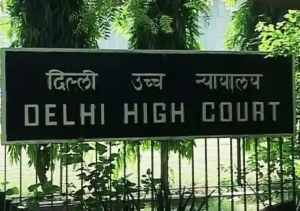 The Delhi High Court in the case of M/S. SETHI SONS (INDIA) VERSUS ASSISTANT COMMISSIONER AND ORS vide No.- W.P.(C) 4179/2022 dated 22.12.2023, held that the refund application was filed twice on the GST portal but could not be uploaded due to technical glitches.
The Delhi High Court in the case of M/S. SETHI SONS (INDIA) VERSUS ASSISTANT COMMISSIONER AND ORS vide No.- W.P.(C) 4179/2022 dated 22.12.2023, held that the refund application was filed twice on the GST portal but could not be uploaded due to technical glitches.
In this case, the petitioner is an individual and carries on the business of, inter alia, exporting goods and services under the name of its sole proprietorship concern, M/s Sethi Sons (India). The petitioner attempted to file an application for refund of unutilised ITC for the month of August 2017 on 14.05.2018. However, the petitioner could not complete the online filing of this application due to a technical error encountered on the GST portal. Subsequently, the petitioner once again attempted to file an application for refund of unutilised ITC for the month of July, 2017 on 08.08.2018. However, the petitioner was unable to complete the process on account of technical errors encountered on the GST Portal.
The Petitioner filed a complaint on the GST portal under the GST Redressal Section. Also, The petitioner claims that he made several efforts to manually submit its application. However, the concerned officer declined to accept the same. The Petitioner then made a consolidated application (in FORM GST RFD-01) for the refund of unutilised ITC exports effected during the financial year 2017-18 on 05.02.2020 claiming a refund of ₹13,43,757/-. But the same was denied on the ground that it was filed beyond the period of two years from the relevant date being the date of export of the consignments.
Here, before the High Court the petitioner challenged the denial of refund of unutilized input tax credit (ITC) accumulated in respect of the Goods and Services Tax paid on inputs in respect of the zero-rated supplies—goods exported without payment of IGST. The petitioner claimed that he made several efforts to manually submit his application. However, the concerned officer declined to accept it. The assertion is disputed by the respondents or department, as the respondents do not have any record of the same.
The petitioner contended that the authorities had completely ignored the technical glitches and errors encountered by the petitioner initially at the time of filing monthly refund applications. The applications were within time; however, the petitioner could not complete the filing without any fault on its part. Therefore, the petitioner’s claim could not be rejected on the ground of limitation.
The department contended that the petitioner had faced technical issues in uploading the refund applications. A ticket in respect of the petitioner’s complaint was also issued on August 8, 2018. However, the petitioner did not file any claim for a refund thereafter. He had done so almost one and a half years later, on February 5, 2020. In the intervening period, there was no impediment for the petitioner to file its claim for a refund. To address the issues, provisions were made to accept applications and returns manually. The window was open till 26.09.2019. The respondent also disputed the submissions that the petitioner was advised by the Jurisdictional GST Office to file a refund claim after filing the annual GST returns in Form 9 and obtaining the bank realization certificates.
The Court observed that during the initial period of the rollout of the GST regime, both taxpayer and the officials of the GST departments faced innumerable difficulties that were being addressed. Some of the difficulties still persist and are being addressed. In this environment, it is not difficult to accept that a taxpayer would have sought advice from the jurisdictional officers. The petitioner acted in a bona fide manner.
Therefore, the Court held that if the taxpayer has made a bona fide attempt to make an application but was prevented from doing so on account of technical glitches or for any reason attributable to GST authorities, its claim for refund cannot be denied on account of delay.
To read the complete judgment 2023 Taxo.online 1429


